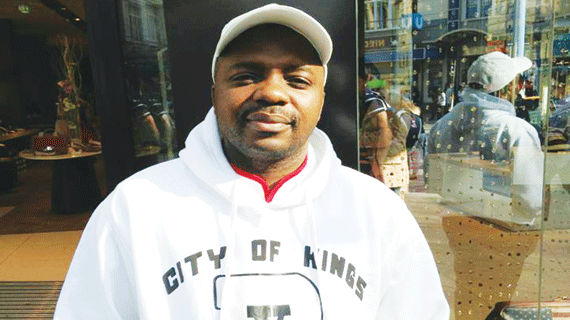
NAMA it was and the 2014 edition is gone with its highs and lows.
A lot has already been said and probably the same things will be said again next year. Is there ever any genuine attempt to improve the awards or it has just become routine worldwide that year in year out we dress to impress and we mention who the nominees are and subsequently the winner?
Then comes the “I would like to thank my so and so and who and who” speeches, the many thanks to the Almighty, the real and crocodile tears one after the other that after a few tend to be a bore.
The awards routine, not only locally but worldwide, needs serious revamping because it is simply becoming somewhat redundant. We need new ideas and we need more creativity in the presentation of awards.
Award ceremonies need more input to make them worth their while in this day and age. Just a thought.
I will not dwell so much on all the issues that have been pondered on and debated the whole week about Nama. I will write about tears. Tears that touched me and got me thinking very seriously.
At the awards we are used to tears of joy. We are used to people dropping tear petals because they cannot believe they won an award or two. When filmmaker Enock Chihombori burst into tears and spoke about his outstanding screen production award for his film Gringo The Trouble Maker, it was a different story. The whole venue was suddenly gripped by tension, attention and a sombre mood for that moment.
There was a man who spoke from his heart and had every artiste reflecting on their past and their future.
- Chamisa under fire over US$120K donation
- Mavhunga puts DeMbare into Chibuku quarterfinals
- Pension funds bet on Cabora Bassa oilfields
- Councils defy govt fire tender directive
Keep Reading
The long and short of his speech was that he had invested a lot of money in his film, but he made a loss. He said the only good thing that had come out of the movie was that award. Save for that gong he said the movie had left him and his family broke after investing in it his personal, hard-earned cash. What could be worse? Chihombori’s enemy in all his troubles with the film was not Gringo but none other than PIRACY. The movie was pirated before it was even released.
I know the pirates were watching. Some were probably recording the live event for resale the next day. I know politicians were watching. I sat next to our Arts and Culture minister Andrew Langa. I know the police, the judges and prosecutors were also glued to their television sets and witnessed that moment of truth.
The question for me remains whether there is any serious political, civil, legal and let alone social will to put an end to piracy? I don’t think so. I do not believe that there is much bother to end piracy. The streets are still littered with copycat work from musicians, actors and writers of this world.
There is a Ndebele proverb that says imbuzi yomyanga ikhala isiya emakhankeni (The dilemma of a poor man is that his one and only goat always flees in the direction of jackals).
As if it is not enough that artistes find it hard to make a living out of their work, piracy was born. As technology developed it became so easy and gets even easier, let alone cheaper by the day to copy and reproduce films, music and books, among other artistes work.
Who is to blame? Can we blame people for buying pirated work? Given a choice, would you buy the more expensive original CD or DVD at the expense of the cheaper pirated copy or free download of the same piece? Logic and buying power tend to win over conscience in such instances. Even artistes themselves pirate each other’s work.
The biggest culprits in piracy are not at Egodini or Mbare Musika. The worst pirates are not those who sell CDs and DVDs in the streets. The chief offenders are billionaires and untouchable. YouTube, among other sites for example, is for me one of the biggest culprits.
Music is downloaded and uploaded on YouTube. People watch artistes work on YouTube for free. We are happy that millions viewed our work on the site yet save for publicity we earn nothing from it.
On the other hand, it is those multi-million dollar companies that produce blank DVDs, CDs, software and hardware to enable the reproduction and copying of artistes’ work that owe us. For so many years they have denied it and claimed the software is produced for good intentions, but then abused in turn.
This excuse smacks of dishonesty on their part. Surely there are means, the world boasts of IT experts who can come up with ways and means to block or reduce illegal copying of recorded work. There is just no commitment to making it happen and for the obvious reason that the industry remains a cash cow for certain cooperates.
Our politicians need to come to our rescue. Stern measures await rapists and heavy sentences have reduced stocktheft.
The same should be done when it comes to piracy. Theft from artistes is not taken seriously at all. We have read stories of people sentenced to over 20 years for stealing a loaf of bread. That does not compare to what pirates steal from artistes. They steal their livelihood. Chihombori, I hope your tears were not in vain.
Follow me on twitter @NkueInnoeDube










